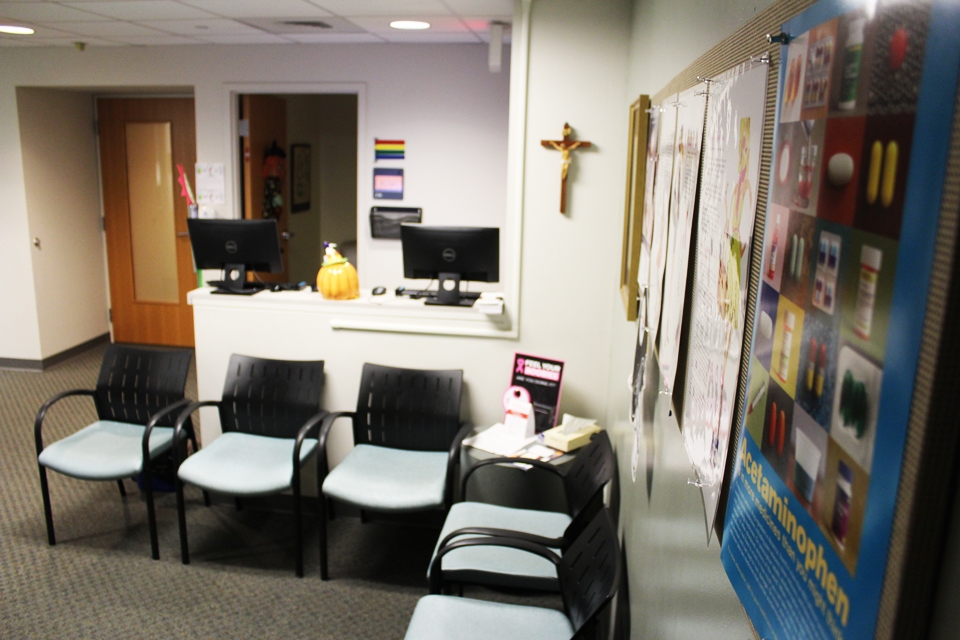
A photo of the Health Services office in the Student Union. Several Duquesne students have become ill with hand, foot and mouth disease, which usually affects infants.

A photo of the Health Services office in the Student Union. Several Duquesne students have become ill with hand, foot and mouth disease, which usually affects infants.
Carolyn Conte | Staff Writer
A disease typically associated with infants has begun to make its way onto college campuses, including Duquesne’s.
Hand Foot and Mouth Disease (HFMD) has infected a few students at Duquesne recently, and with the news of an outbreak at Florida State University, there has been an increased worry about the sickness. While it may seem that there has been a rise in the disease, the Centers for Disease Control and Prevention (CDC) has not made any notifications or warnings.
HFMD is a common viral illness known for affecting children younger than five years old, according to the CDC. Duquesne’s Director of Health Services, Dessa Mrvos, said that it is “less likely,” but possible, for adults to contract it.
Justice Perry, a sophomore history major at Duquesne, said he caught the disease this past September and was diagnosed at his local urgent care center, Med Express, three days after his symptoms appeared.
“The areas where many of the itching and blisters occurred were areas that would be affected while sleeping, like my back and sides,” he said.
His symptoms started with a fever and sore throat for a couple of days. Then, Perry started to get severe headaches and develop blisters on his hands, back and sides. He also felt fatigued and “itchy to the point where it was unbearable.”
“That would happen usually once or twice a day, and my head felt like it was throbbing,” Perry said.
The CDC also lists loss of appetite as another possible symptom.
Some of Perry’s floormates in Towers also contracted HFMD around the same time, he said.
To remedy the symptoms, Med Express told Perry to buy an itch cream and take an allergy medicine. The CDC lists aspirin and numbing mouthwash as another treatment option.
There is no vaccine to protect against the virus. Instead, Mrvos said a person can lower their risk of infection by washing their hands, disinfecting frequently touched surfaces and avoiding close contact with known infected persons.
The virus which causes HFMD can be found in an infected person’s saliva, nasal mucus, feces and blister fluid. It spreads to others through coughing, sneezing or contact with contaminated surfaces or persons, according to Mrvos.
Infected persons are most contagious during their first week of sickness, according to Anthony Guarascio, professor of pharmacy.
“There has not been a rise in cases [at Duquesne] in terms of students presenting to our clinic with potential HFMD,” Mrvos said, though she added, “viruses are a constant threat in communal living situations such as colleges and universities.”
For example, since the virus is more common in children, it usually happens in daycare settings, according to Guarascio.
Perry believes he may have caught HFMD through his bedsheets because of people sitting on it. Perhaps one of his guests had the virus but did not show symptoms, as that is possible according to the CDC.
Perry believes taking better care of cleanliness could prevented illness.
“I know a couple other kids on my floor caught the disease so I definitely feel that a lack of sanitation could have played a part in getting the disease,” he said.




